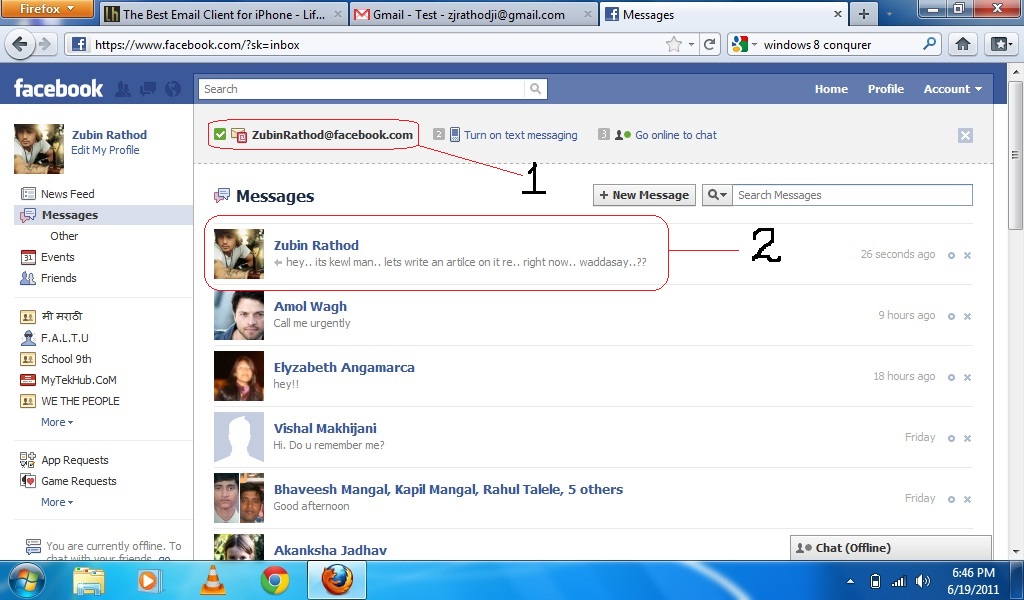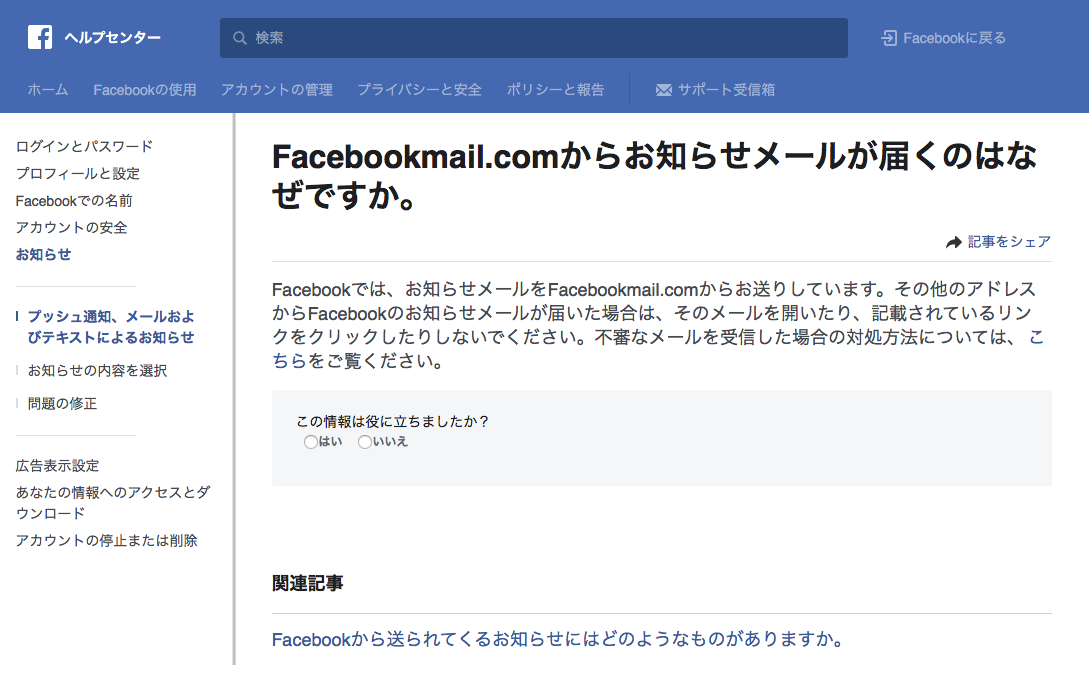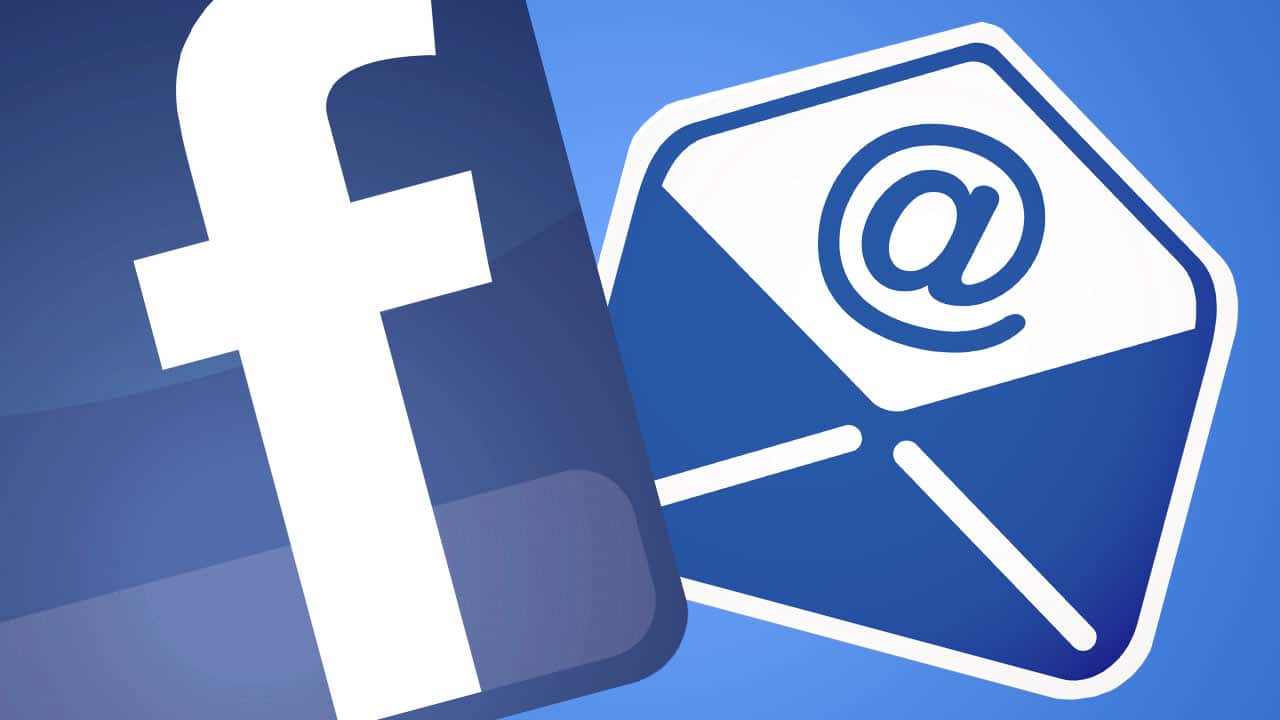Facebook Emails: Is It Real? How To Spot Phishing & Stay Safe
Are you concerned about the authenticity of emails you receive claiming to be from Facebook? It's crucial to be vigilant, as phishing scams that impersonate Facebook are increasingly sophisticated, aiming to steal your personal information.
Navigating the digital landscape requires a keen eye, especially when it comes to the communication you receive in your inbox. Phishing, a deceptive practice employed by cybercriminals, has evolved into a significant threat, with social media platforms like Facebook being prime targets. Hackers often craft elaborate schemes to impersonate legitimate entities, such as Facebook, with the intent of tricking users into divulging sensitive information. This can range from login credentials and credit card details to other forms of personal data that can be exploited for malicious purposes.
Understanding how to identify and avoid these scams is paramount to safeguarding your online security. This article provides a comprehensive guide on recognizing genuine Facebook communications, distinguishing them from fraudulent attempts, and protecting your account from potential compromise. By staying informed and adopting a proactive approach, you can significantly reduce your risk of falling victim to these deceptive practices.
To begin, it's helpful to know how to access the recent emails associated with your Facebook account. Start by clicking on your profile picture located in the top right corner of Facebook. Then, select "Settings & Privacy," followed by "Settings." In the Settings menu, navigate to "Accounts Center" and then "Password and Security." Within the Security Checks section, you'll find an option to view your "Recent Emails." This section displays the email addresses that have been used to communicate with you regarding your Facebook account.
Facebook itself uses a specific set of email domains for official communications. The most common and trustworthy are: facebook.com, fb.com, and facebookmail.com. If you receive an email from one of these addresses, it is highly likely to be a legitimate communication from Facebook. These emails may contain notifications about friend requests, messages, event invitations, or updates regarding your photos and videos. They may also address issues like claims that you've violated community standards, or, if you operate a business, that you are not in compliance with Meta's advertising standards, commerce policies, or other relevant terms and conditions.
Conversely, if you receive an email that seems to be from Facebook but originates from an unfamiliar or misspelled email address, it's essential to exercise caution. Phishing emails often employ slight variations or deceptive sender addresses to trick users into believing their authenticity. Always scrutinize the sender's email address carefully, looking for any inconsistencies or irregularities.
If you're unsure whether an email is legitimate, it's always best to err on the side of caution. Do not click on any links within the email. Instead, go directly to the Facebook website or app. Log in to your account and check your notifications and messages to see if the information in the email is also present there. Additionally, you can always reach out to Facebook's support team to verify the email's authenticity.
One common tactic used by scammers is to create a sense of urgency. They may claim that your account has been compromised, or that you need to take immediate action to secure your account. They may threaten to suspend your account if you don't respond promptly. However, it is always important to remain calm and critically assess the situation before taking any action. Facebook will never pressure you to click a link or provide sensitive information.
Another tactic employed by hackers involves creating fake login pages that mimic the appearance of the actual Facebook login page. These pages are designed to capture your login credentials. Be sure that the website address in your browser's address bar begins with "https" and includes the word "facebook.com." The "s" in "https" indicates a secure connection.
Furthermore, it is crucial to understand what phishing actually is. Phishing is a technique used by hackers on social media to collect sensitive data like account login credentials, credit card details, and other personal data. Phishing attacks often involve impersonation, where scammers pose as a legitimate source, such as a Facebook representative, to trick you into providing confidential information. Hackers may also send malicious attachments which, if opened, can install malware on your device and give the hacker access to your information.
Facebook uses the domain facebookmail.com to send notifications, especially when there's a detected attempt to log into your account or to change your password. This domain helps users spot real Facebook messages and avoid fake ones. If you receive an email from Facebook requesting you to take action on your account, such as resetting a password or verifying your identity, always verify the sender's email address. Genuine Meta emails usually come from domains like @facebookmail.com or @instagram.com.
If you receive an email that appears to be from Facebook and are unsure of its authenticity, consider the following: examine the sender's email address carefully, paying close attention to any variations or misspellings; avoid clicking on any links in the email unless you are certain of its legitimacy; and never provide sensitive information, such as your password or credit card details, in response to an unsolicited email.
Remember that Facebook will never ask for your password via email. They will never ask you to provide sensitive information unless you have initiated the contact.
If you do click on a link in a suspicious email and are prompted to enter your login information, stop immediately. Do not enter your username and password. Instead, close the browser window and navigate directly to Facebook's official website or app. Once you log in, check your account activity to see if there have been any suspicious log-ins or changes made to your profile.
If you suspect that your account has been compromised, you can take the following steps to secure it: change your password immediately, enable two-factor authentication, and review your account activity for any unauthorized actions. You can also report the phishing attempt to Facebook. This helps them to identify and block fraudulent accounts. If you believe you have entered your login information on a phishing site, you should immediately change your password. Its also a good idea to update your security questions.
Stay aware of the kind of content that can make an email look suspicious, such as a request for your personal information or financial details. Check the website address of the link to verify the authenticity. If it seems strange, it is likely a scam. Also, avoid clicking on links that use shortened URLs (like bit.ly). If you have clicked on a link and are taken to a website, check the address in your browsers address bar before entering your credentials.
Facebook is continually working to improve security measures to protect its users from phishing and other cyber threats. They utilize advanced technologies and monitoring systems to detect and prevent fraudulent activity. They also provide educational resources and tools to help users stay informed about the latest security threats.
Facebook Protect is a security program aimed at providing a more secure experience, particularly for those who are at a higher risk of being targeted by hackers. Facebook Protect can be used to enable enhanced security features, such as two-factor authentication. These features are designed to help prevent your account from being compromised. If you receive an email asking you to use advanced security via Facebook Protect, this is generally a legitimate request.
Facebook's community standards outline what is and isn't allowed on the platform. Violations of these standards can lead to the removal of content or the suspension of your account. If you receive a notification alleging that you have violated these standards, review the details carefully. If you believe the claim is false, you can appeal the decision. If you operate a business, ensure that you comply with Meta's advertising standards, commerce policies, and all other applicable terms and conditions.
Scammers often use comments or direct messages to reach out to people, claiming they can fix accounts or requesting money or login information. If you are experiencing a problem with your account, beware of these kinds of scammers. Never give them any private information.
Here's a table of key points to remember to protect yourself from phishing scams:
| Key Area | Details |
|---|---|
| Sender Verification | Always examine the sender's email address. Genuine Facebook emails come from @facebookmail.com or @meta.com. Be wary of slight variations or unfamiliar addresses. |
| Link Inspection | Avoid clicking on links within suspicious emails. Instead, visit Facebook directly through their official website or app. |
| Urgency and Threats | Be skeptical of emails creating a sense of urgency or making threats. Scammers often use these tactics to pressure you into acting quickly. |
| Password Requests | Facebook will never ask for your password via email. Never provide your password in response to an unsolicited email. |
| Account Activity Review | Regularly check your Facebook account activity for any unauthorized logins or changes. |
| Two-Factor Authentication | Enable two-factor authentication to add an extra layer of security to your account. |
| Reporting Phishing | Report any suspected phishing attempts to Facebook to help them identify and block fraudulent accounts. |
| Content Scrutiny | Carefully review the content of any suspicious email, looking for requests for personal information, financial details, or links that seem odd. |
| Facebook Protect | If prompted, take advantage of Facebook Protect and enable advanced security features. |
| Official Communication Channels | Use Facebook's official channels (website, app, or support) for all account-related inquiries and actions. |
If you receive an email that you think is from Facebook, take the following steps: First, check to make sure the email is from facebookmail.com or meta.com. If the email looks strange or the sender's email address looks unusual, it may be a scam. Do not click any links or open any attachments. Its always better to be safe than sorry.
In conclusion, protecting your Facebook account from phishing scams requires a proactive and informed approach. By understanding the tactics used by scammers, verifying the authenticity of emails, and utilizing the security features provided by Facebook, you can significantly reduce your risk of falling victim to these deceptive practices. Always exercise caution, verify information, and report any suspicious activity to Facebook immediately. Stay vigilant, and keep your account secure.


